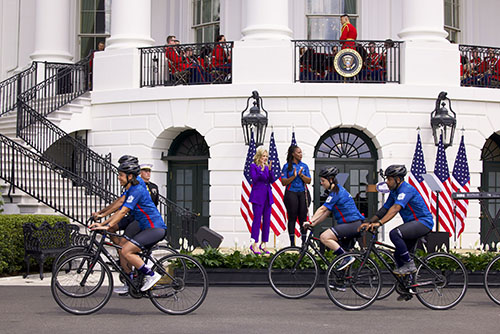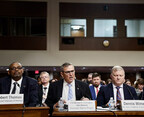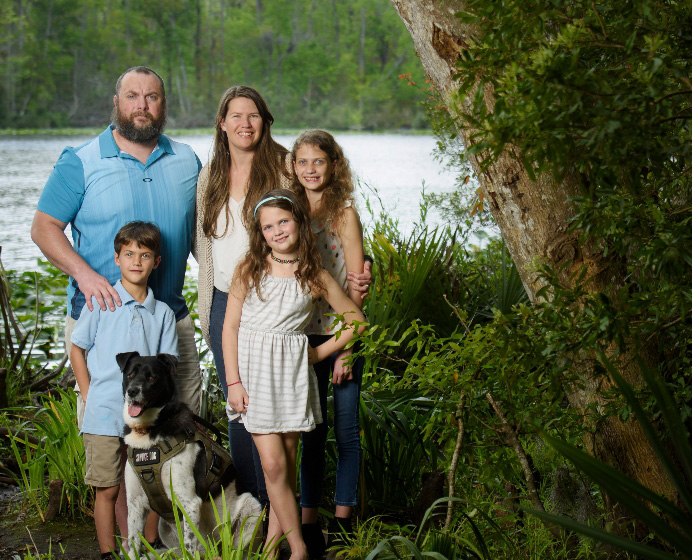Wounded Warrior Project Testifies Before U.S. Senate, Urges Immediate VA Action to Improve Access and Effectiveness of Mental Health Care for Veterans
Washington, DC (Nov. 30, 2011) – Wounded Warrior Project® (WWP) today challenged the Department of Veterans Affairs (VA) to take immediate action to solve systemic gaps in mental health care for veterans.
John Roberts, executive vice president of Mental Health and Family Services for WWP, testified before the Senate Committee on Veterans Affairs as a follow up to a July 14 hearing on this same issue regarding the VA’s mental health care policies. Roberts, who served in the U.S. Marine Corps from 1982 to 1996 before receiving a medical discharge for wounds suffered in a helicopter crash in Somalia during Operation Restore Hope, discussed the findings of a WWP survey of over 935 respondents and emphasized the major changes the VA must implement swiftly in order to enact improvements to its responsiveness and effectiveness.
“In our view, VA leadership is falling short in meeting this challenge – short on urgency, short on commitment, short on vision, and short on action,” Roberts said. “We urge the Committee to demand more.”
The WWP survey found that 62% of respondents requested mental health care through the VA with two in five indicating difficulty in receiving the care necessary to move forward – 40% of those experiencing difficulty indicated they did not receive treatment as a result.
Warriors facing such serious mental health problems need timely, effective mental health care. However, the survey’s findings found some very common and alarming issues that VA must address, including, but not limited to:
- Lack of available mental health providers.
- Not seeing the same therapist twice.
- Difficulty in obtaining appointments with flexible scheduling surrounding work/personal commitments.
- Distance to available VA clinics or hospitals.
“The VA is failing too many returning warriors: failing to reach warriors who need mental health services, failing to provide needed mental health treatment in a timely manner, and failing to sustain warriors in treatment,” said Steven Nardizzi, executive director, WWP. “Our experiences in working with Wounded Warriors overwhelmingly support the fact that access to appropriate mental health care is a real and dire issue that warrants immediate, aggressive action.”
In a letter sent to VA Secretary Eric Shinseki in October, as well as in Mr. Roberts’ testimony today, WWP proposed the following three immediate solutions to some of these dire issues: better utilize the hundreds of vet centers nationwide and allocate more resources to those centers, integrate peer-to-peer support to help sustain veterans in treatment, and pay for private care options if VA resources are so limited and taxed that a warrior in need cannot be seen within a reasonable timeframe. Shinseki has yet to respond to the WWP letter.
Backing WWP’s approach, Dr. Charles Hoge, a leading clinician/researcher in the field of mental health care, offers the following assessment of helping veterans with war-related post-traumatic stress disorder (PTSD):
“Improving evidence-based treatments … must be paired with education in military cultural competency to help clinicians foster rapport and continued engagement with professional warriors … Matching evidence-based components of therapy to patient preferences and reinforcing narrative processes and social connections through peer-to-peer programs are encouraged. Family members, who have their own unique perspectives, are essential participants in the veteran’s healing process and also need their own support.”
WWP again urges VA Secretary Shinseki to act boldly and quickly to institute major changes to improve the responsiveness and effectiveness of VA mental health care services.
About Wounded Warrior Project
Since 2003, Wounded Warrior Project® (WWP) has been meeting the growing needs of warriors, their families, and caregivers — helping them achieve their highest ambition. Learn more.


